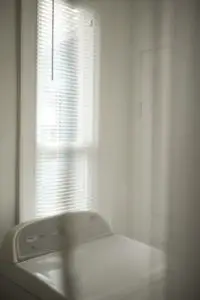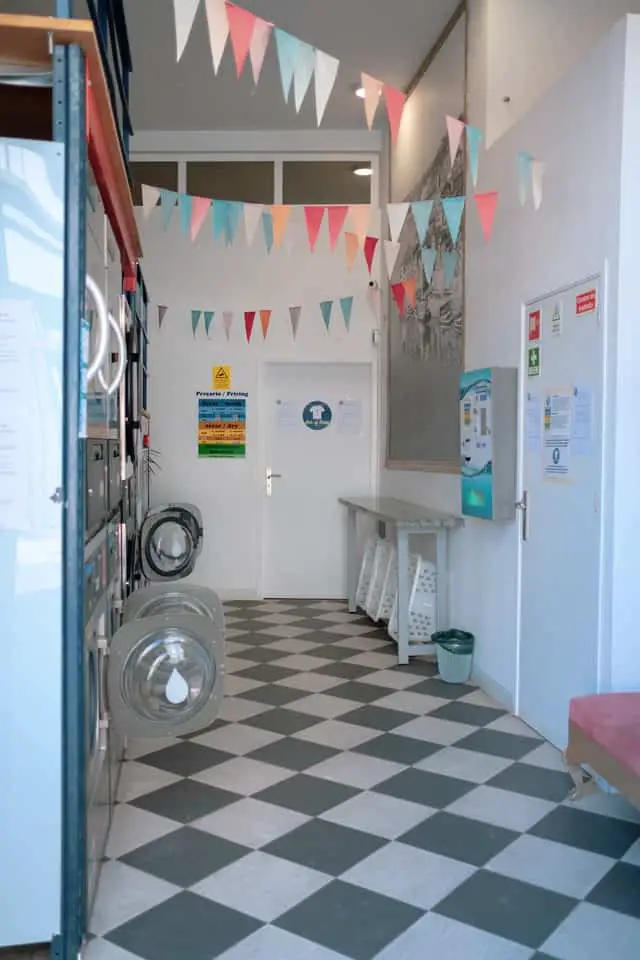The dishwasher and washing machine are two highly essential cleaning machines in any modern home.
There are at times you will find yourself being compelled to decide between using both the washer and the dishwasher at the same time or one of them and another device that uses a lot of water.
Can You Run The Washing Machine And Dishwasher At The Same Time?
Two answers, “Yes” and “No”! It just depends. Different homes have different water pressures and water heaters of different capacities. Remember that both of the devices will draw from the same water heater if you choose to run them concurrently. There are many factors at play.

Let’s take a glance at each of them:
Water Pressure & Water Heater Capacity – The Bigger the Better
- If there are doubts about the capacity of either machine, consider running them separately to avoid surges.
- Even then, start with the dishwasher, then the washing machine.
Another reason is that dishes deserve hot water more than clothes do, so you want your dishwasher to have the first shot at the available hot water.
Also, want your dishes to be cleaned by the hottest jet of water available.
You also don’t want your dishwasher to heat up more hot water than it already has to achieve the optimum temperature for dishwashing.
If the dishwasher has to, it will need to do that with electrical power instead of gas supply which the water heater probably uses and probably, I’d assume, your gas costs much less than your electricity supply – the dishwasher will consume a lot of it if necessary.
- If the water heater is sizable enough (has large reserve capacity) to support more than a single function, go ahead and use both machines at the same time.
- If the city water pressure or the pump to the house or room is sufficient to keep an adequate delivery rate to serve multiple functions, go ahead and use both machines at the same time.
More often than not, you will test water pressure and find it to be sufficient, but things often begin to go south if you open two outlets, say, the shower and washer, at the same time.
You’ve probably noticed that your hot water supply begins to run lower and lower with each extra load you add on the other end.
If you have to run two showers, a washer, and a dishwasher at the same, you are more likely to start receiving mere drops out of the pipes. It is also important to note that excessively large capacity water heaters tend to waste energy when idle compared to small or adequately sized s water heaters.
In a nutshell, you can only run these two appliances at the same time if the water pressure of your home is high enough to support them at the same time. Also, if the capacity of your water heater is large enough to support them at the same time, go ahead and run them concurrently.
Related: Are Dishwashers and Washing Machine Hoses The Same?
How Old Are They? – The Older the Better (sometimes)
If your washing machine and dishwasher are more than ten years old, you are good to run them simultaneously if possible.
Are you surprised?
Older washers tend to be less demanding when it comes to the supply of water thus may not rush your hot water system.
It is still okay to use an older washer alongside a new dishwasher because of the small size of the dishwasher, but it would be great if both were older.
By maximizing the utilization of the water heater, you will save a few bucks in energy bills. Of course, don’t just run a near-empty dishwasher and a washer for the sake of pairing them and saving some money.
However, there is something you need to be careful about – the power consumption of each of these two appliances.
This is a major for both old and new appliances. Consider checking the power requirements of each machine and determine the effect on your home’s electricity supply.
Both use a lot of electricity and hot water. In some old homes, it is very possible to trip the circuit breaker if you run the washer and the dishwasher at the same time.
The same applies to water use.
It can cost you plenty of water resources if you run both the washer and dishwasher at the same time.
An older dishwasher, for example, can use about 16 gallons of hot water on every load of dishes.
Modern high-efficiency dishwashers, however, can cut that amount to about 7.5 gallons per load. Conversely, the older washers use about 50 gallons on a full load while the efficient modern washers use about 20 gallons on a full load.
Still, running an older washer concurrently takes less than 70 gallons during a 1-hour cycle, which can compare to running one sink at 1 1/2 (one and a half) gallons per minute in about 50 minutes. This falls within the usual capacity found in most home water systems.
So, if your home’s power supply tends to shake whenever you attempt to run two power-intensive power appliances such as the heater and the oven at the same time, it should be clear to you at that point that running the washer and the dishwasher wouldn’t be a good idea.
Three Benefits of Running the Washing Machine and Dishwasher at The Same Time
Combining these two appliances and taking on the two chores at the same time can boost the efficiency of your hot water system quite considerably.
1. Water Efficiency
Running a full washer and a full dishwasher at the same time cuts the number of loads the home will wash in any given period.
Not only does it allow you to complete two laborious chores at the same time, but also reduces the amount of money you’ll spend on heating the water and even the cost of water itself.
2. Water heater efficiency
You can improve the efficiency of your water heater by running these two washing appliances at the same time.
Think about it – it is cheaper to draw down your heater once instead of twice or several times with the appliances running separately.
Running them at once allows the heater to cycle just once.
This may not be an issue with an on-demand or tankless water heater.
3. Hot Water Use
Your dishwasher is an all-hot-water appliance while the washer may use a mixture of cold and hot water.
Most home water heaters maintain a maximum of 50 gallons of hot water in their reserves.
The heater also starts heating additional water immediately water is drawn out of the tank.
Most tankless water heaters have capacities as high as 4 gallons a minute or sometimes 240 gallons an hour.
In a nutshell
Run the washer and the dishwasher at the same time if:
1. If the water heater has a large reserve capacity to support more than a single function.
Water heaters are sold in different capacities.
The best capacities for multi-function support (such as supporting the washer and dishwasher at the same time) can also depend on the size of the household.
The ideal multi-function water has a capacity in the brackets of 50 gallons to 80 gallons.
2. If the city water pressure or the pump to the house or room is sufficient to keep an adequate delivery rate to serve multiple functions.
Normal water pressure in most American homes is between 40 PSI and 60 PSI.
Most homeowners prefer water pressure somewhere in the middle, about 50 PSI. It is recommended that you determine your current pressure before making adjustments.
Once you find your household water pressure, proceed to adjust it and get the ideal works for your family and water appliances.
Nevertheless, the 40 – 60 PSI range is sufficient for running the washer and the dishwasher at the same time.
3. If your washing machine and dishwasher are more than ten years old, you should PROBABLY run them simultaneously if possible.
Older washers tend to be less demanding when it comes to the supply of water thus may not rush your hot water system.
However, you need to weigh this against the water and energy efficiency of the appliances.
Do not run the washer and the dishwasher at the same time if:
1. If the two appliances are too old and both water and energy inefficient.
These two, if old and energy-inefficient, could trip your circuit breaker when allowed to run at the same time.
2. If there are doubts about the capacity of either machine.
After all, dishes deserve hot water more than clothes do, so you want your dishwasher to have the first shot at the available hot water
Note that the water and energy-efficiency of these two appliances only come to question when considering their ages.
Most of the modern appliances are highly energy and water-efficient.
For homes that still use older appliances, the question is mainly whether the two devices will cause chaos on the stability of the home’s power supply or not.


